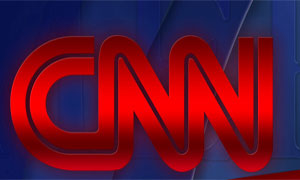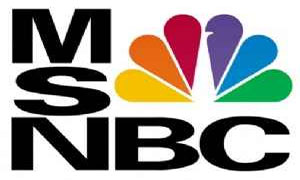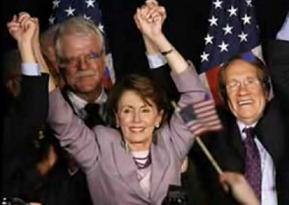Cable News
With their wall-to-wall coverage, their battle-ready brigade of pundits and correspondents, and exit poll results already in hand, the cable news channels were eager for election night. The genre of national TV news born in 1980 with CNN now dominates election night coverage on television, at least when it comes to time and personnel devoted to the effort. The commercial broadcast networks have in that sense ceded the ground to cable.
When it came to delivering on that time, the late nature of the election calls exposed cable news’ inordinate reliance on live talk, particularly from outside “experts.”
While the coverage was pervaded by a sense that Democrats might be headed for a big night, many of the tight victories in key Congressional districts did not become apparent until later in the night—and in the case of the Virginia and Montana Senate races, until a day later. This left cable anchors and commentators with a stagnant electoral map for large chunks of time. (“Great, at least we can project something,” snapped mildly annoyed Fox New Channel anchor Brit Hume, when informed that the network, at 8:30 p.m., was ready to predict that Tennessee voters would pass a gay marriage ban.)
That problem was exacerbated by the lack of both fresh reporting from the field and prepared story packages to fill that void. That left in-studio pundits with a lot of time to rehash familiar themes and spin. When CNN contributors Bill Bennett and Paul Begala spent time debating the merits of Begala’s characterization of Rush Limbaugh as a “drug-addled gas bag,” it was one signal of a dearth of news.
In the end, while cable news has the time to fill and an audience that is presumably so serious that it can’t wait for the broadcast networks that were to come on at 10:00, the channels are still imagining their role as putting on a live show and reporting and analyzing results. They defined the story as what occurred that night, relying on people in the studio rather than written and edited reporting from the field to explain how and why that might have occurred.
The Fox News Channel (FNC)
Just one minute into the network’s 6 o’clock “Special Report with Brit Hume” election show, FNC exit poll point man Chris Wallace was already hinting at a potential Democratic victory, rattling off exit poll numbers that showed 58% of voters disapproving of Bush’s job performance, 62% of them saying national issues mattered most, and 57% of late deciders breaking for the Democrats.
It was a key early “tell,” as to the possible outcome, as were the exit data an hour later showing that 54% of the voters in Virginia—site of the pivotal Jim Webb-George Allen Senate fight—opposed the war in Iraq, a favorable sign for the Democratic challenger.
But there was a paradox at play. Even as the network was showcasing some exit poll data, a significant part of its coverage entailed Hume’s repeated assertions that the exits—which have had their problems in the past three election cycles—were unreliable and biased toward the Democrats. That story line came to a dramatic conclusion at 9:25 p.m. when FNC contributor Michael Barone stared glumly into the camera and informed viewers that because of a tilt toward the Democrats of between six and eight points, “we are not going to be relying on exit poll information anymore,” in projecting winners. Fox was the only network to treat the exits data with such disdain and mistrust and to make it a major theme of the early commentary.
Observers might not have needed exit polls to sense the electoral winds when at 9:15 Republican National Committee Chairman Ken Mehlman talked with interviewer Chris Wallace enthusiastically about the prospect of bi-partisan governance in Washington.
Some 20 minutes later, after the network projected a key Democratic win in Kentucky’s Third Congressional District, Hume—who remained wary all night about predicting the overall outcome—gingerly acknowledged that “we’re beginning to see the early outlines of what we could consider a trend.”
Fox relied on its main Fox political panel of pundits to fill much of its airtime. The group, Fred Barnes and William Kristol of the Weekly Standard, veteran commentator Mort Kondracke, and Juan Williams of National Public Radio, endeavored to sustain their energy throughout the course of the long and sometimes static evening. Kristol, using a John Madden-style telestrating device to keep track of changing Congressional seats, seemed listless at the task. Without reporters in the field with news, or background packages offering context or documentary style recap of the race and its dimensions, they carried the load.

One hurdle may have been the reliance on opinion journalists. Kristol and Barnes—top editors at the conservative Weekly Standard magazine—may have had little enthusiasm about the evening’s events, particularly Kristol, who remains an advisor and activist as well as an opinion journalist.
The night also did not pass without one Democrat taking a slap at Fox (Democratic operatives now make accusations that Fox tilts rightward one of their talking points). When Chris Wallace asked Democratic National Committee chair Howard Dean, shortly after 9 p.m., if he wanted to declare victory, Dean demurred, responding that “we’re being very conservative, if I may say so, in a conservative station.”
It was more than two hours later, at 11:18, when the FNC, which eked out a narrow ratings win over CNN, became the last major network to declare that the Democrats would capture the House. Conspiracy buffs may be suspicious, but the late call was in keeping with Hume’s innate caution, the network’s expressed lack of faith in its exit poll, and some history. The last two presidential election nights looked glum for the GOP early on, too, and turned around, enough to give any journalist caution.
CNN
CNN apparently has begun requiring that its newscasters repeat as a marketing slogan the claim that it had the “best political team on television”—in much the same way that Fox newscasters appear to be instructed to repeat “fair and balanced.” On election night this team seemed eager to stage an extravaganza, using a combination of high-tech bells and whistles and a battalion of anchors, correspondents, pundits, and bloggers.

But CNN ambitions for technical superiority—the cable equivalent of shock and awe—had its limits. At one point the cameras panned to the flat screen monitor in front of commentator William Bennett only to discover he was watching the same thing that people at home were—an image of William Bennett watching CNN anchor Anderson Cooper.
The moment reflected a noticeable self consciousness in CNN’s election coverage. So aware seem CNN’s people of trying to brand themselves with viewers, their coverage at times seemed as much about CNN as well as the election returns.
On paper, the advantage CNN has always had over its cable rivals was that it has a larger staff, more reporters, bureaus and producers. But it has struggled over years how to capitalize on the advantage.
This night it crammed its cavalcade of stars into the coverage, though in studio rather than from around the country. Wolf Blitzer hosted, and Jeff Greenfield was the key analyst. Cooper, the prime-time personality the network is most aggressively marketing, was the ringmaster handling one panel of pundits and another comprised of CNN correspondents. An odd couple of political analysts, Bill Schneider and prime time host Paula Zahn, helped dissect the exit polls. Financial journalist turned opinionated populist, Lou Dobbs, handled the big interviews, and curmudgeonly Jack Cafferty was on hand to solicit emails. Blitzer and Cooper would emerge as the figures getting the most camera time.

On occasion, CNN skipped around to its correspondents for reports from Democratic headquarters in Washington and from hotly contested Virginia, but that represented only a small part of the coverage. This was augmented by a highly touted array of bloggers, ensconced in a Washington DC café. The idea was a nod to the growing influence of this “new media” platform. But the few blogger segments–including one about their role in promoting the insurgent candidacy of Connecticut’s Democratic Senate candidate Ned Lamont—were marred, according to the bloggers themselves on their sites, by technical problems, which may have limited their appearances. It is also not clear how blogging, which involves people typing text into a computer, plays as television. Is a blogger talking on TV a commentator?
CNN’s coverage would also careen from cues about a Democratic sweep on the one hand and a lot of close, late-breaking races on the other.
Some hints came early. Correspondent Dana Bash talked about “depressed” Republicans and “giddy” Democrats as early as 6:02 p.m. A short time later, Republican strategist Ed Rollins practically admitted defeat, declaring, “We thought we were election proof, and obviously this election shows we weren’t.”
Among CNN’s own contingent, the palpable reluctance to predict a Democratic victory lasted well into the evening, leading viewers to perhaps wonder whether the early positive indicators for the Democrats were—as was the case in 2000 and 2004—about to be proved wrong.
At 9:22, CNN projected Democrat John Yarmouth to unseat Republican incumbent Anne Northrup in a key race, in Kentucky’s Third Congressional District. But in an interview with Dobbs an hour later Democratic Congressman and House victory architect Rahm Emmanuel, at least publicly, was still avoiding declarations of victory. By 10:30, Bill Bennett was acknowledging that the Democrats, in their new role, would have to come up with a plan for Iraq. Still, it wouldn’t be until 11:08 EST that CNN would project a Democratic takeover of the House.
For cable, of course, that is 10:08 p.m.Central time, 9:08 p.m. Mountain, and 8:08 p.m. Pacific. The night was still young.
MSNBC
At 6:30 p.m., in interview with the brother of soon-to-be former Pennsylvania senator Rick Santorum, NBC’s Lisa Daniels asked whether the Republican incumbent was mentally prepared for a loss. (“He tried his best,” was the understandably guarded response.)

Yet it wasn’t until 15 minutes later that MSNBC released actual exit poll numbers that illuminated the factors working against Santorum on November 7.
The moment partly illustrated what would emerge as MSNBC’s tendency, signature might be too strong a word, to be slightly more aggressive about making calls and trying to signal events this night. The No. 3 cable channel has clearly tried to brand itself for the intensity of its political coverage, getting major prime time hosts to anchor hours of daytime coverage in the run up to the election, in place of its regularly scheduled programs. On Election Day, MSNBC displayed a running ticker keeping track of how long it was until the polls closed.
Indeed, it would be MSNBC, along with sister broadcast network NBC, that were first to project a Democratic majority in the House, at 10:57 p.m.
Like the other cable networks, one of the MSNBC’s strengths was the ability to go live to some notable election night events, like incoming House Speaker Nancy Pelosi’s remarks at 9:20 and to potential 2008 presidential hopeful Hillary Clinton’s acceptance speech about 90 minutes later. It also had the advantage of using some of the big name NBC network talent—who weren’t on the air during much of the evening—such as Tim Russert, Brian Williams and retired anchor Tom Brokaw. And in offering a quick lesson in the difference between a cable pundit and a broadcast anchor Williams at one point declined to speculate about the results: “As you know, I don’t do opinions.”
But as was the case with its other cable rivals, MSNBC also provided few interviews and fresh news from the field. So like its rivals, its program was dominated by punditry, commentary, and spin from inside its studio.
[Iraq]
Olbermann was not alone in trying to quip. Matthews—interviewing former Republican House Majority Leader Tom Delay—said he envisioned the next Bush State of the Union Address replete with Vice-President Dick Cheney wearing a “sideways snarl and sitting on his left is a very attractive knock out woman”—an obvious, if somewhat sexist, reference to Pelosi.
At 9:25, when MSNBC projected the crucial Yarmouth victory over Northrup in Kentucky, it was Matthews—who was dominating the proceedings—who mused aloud that only a Democratic wave could spell the end of the Congressional career of such a nice woman.
If the tone MSNBC was looking for was hip and ironic, the sometimes excruciatingly slow pace of the evening pressured that, just as it did the insistence on covering the event with largely in-studio pundits. At 9:50 political prognosticator Charlie Cook noted that the outcome of only three of the 50 most important House battles have been called to date—all for the Democrats.
And at 11:04, seven minutes after the outlet had projected the Democrats to gain control of the House with about 230 seats, Matthews was still predicting that they would not capture the Montana, Missouri, and Virginia Senate seats needed to become the majority party in that body. He would be wrong.
But it was an illustration of the role MSNBC has for its hosts. They are not really anchors in the traditional broadcast journalism sense. And aside form reporting results, speculation and personal opinions probably trumped basic reporting this night.

